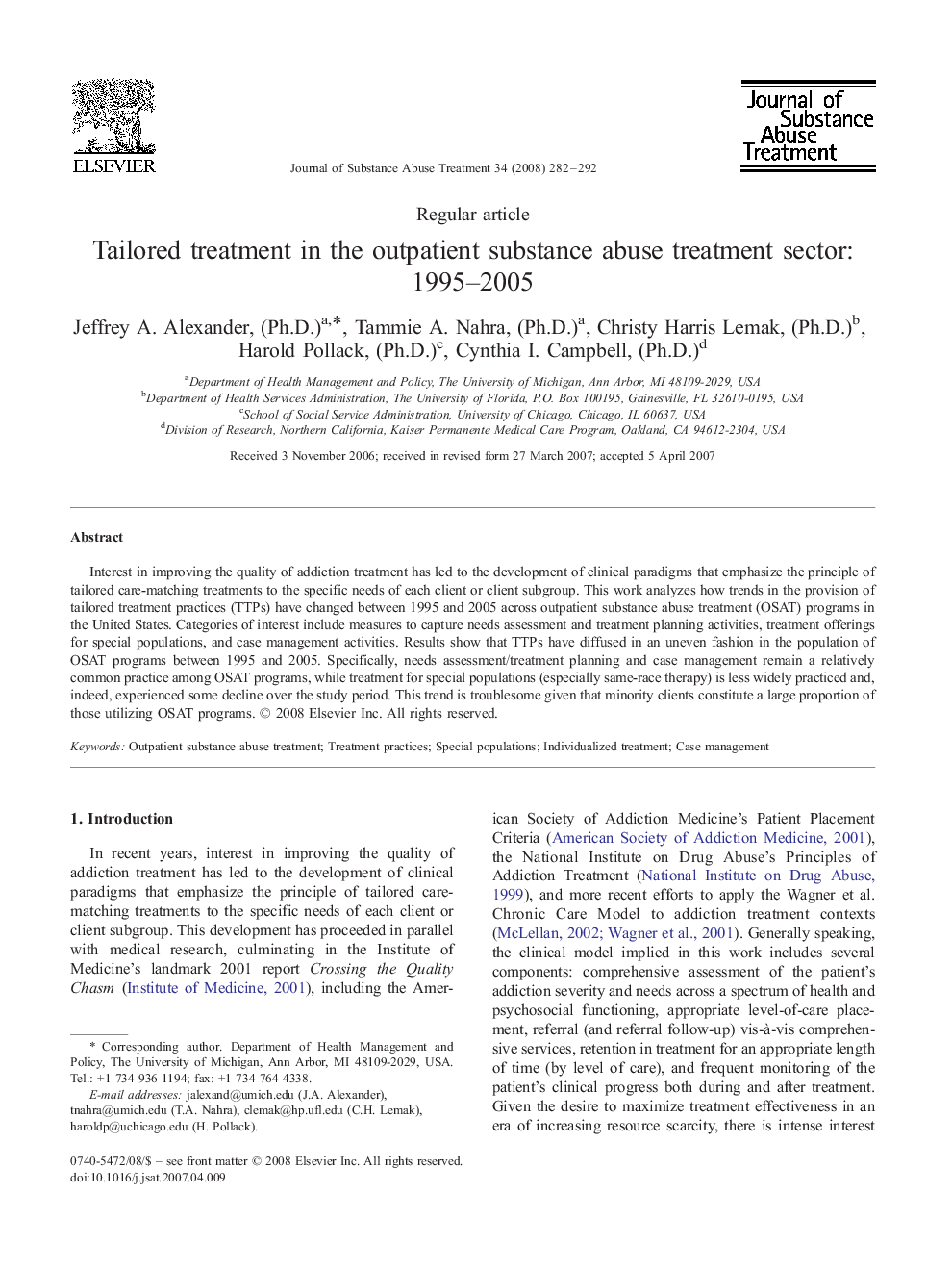| Article ID | Journal | Published Year | Pages | File Type |
|---|---|---|---|---|
| 330056 | Journal of Substance Abuse Treatment | 2008 | 11 Pages |
Interest in improving the quality of addiction treatment has led to the development of clinical paradigms that emphasize the principle of tailored care-matching treatments to the specific needs of each client or client subgroup. This work analyzes how trends in the provision of tailored treatment practices (TTPs) have changed between 1995 and 2005 across outpatient substance abuse treatment (OSAT) programs in the United States. Categories of interest include measures to capture needs assessment and treatment planning activities, treatment offerings for special populations, and case management activities. Results show that TTPs have diffused in an uneven fashion in the population of OSAT programs between 1995 and 2005. Specifically, needs assessment/treatment planning and case management remain a relatively common practice among OSAT programs, while treatment for special populations (especially same-race therapy) is less widely practiced and, indeed, experienced some decline over the study period. This trend is troublesome given that minority clients constitute a large proportion of those utilizing OSAT programs.
